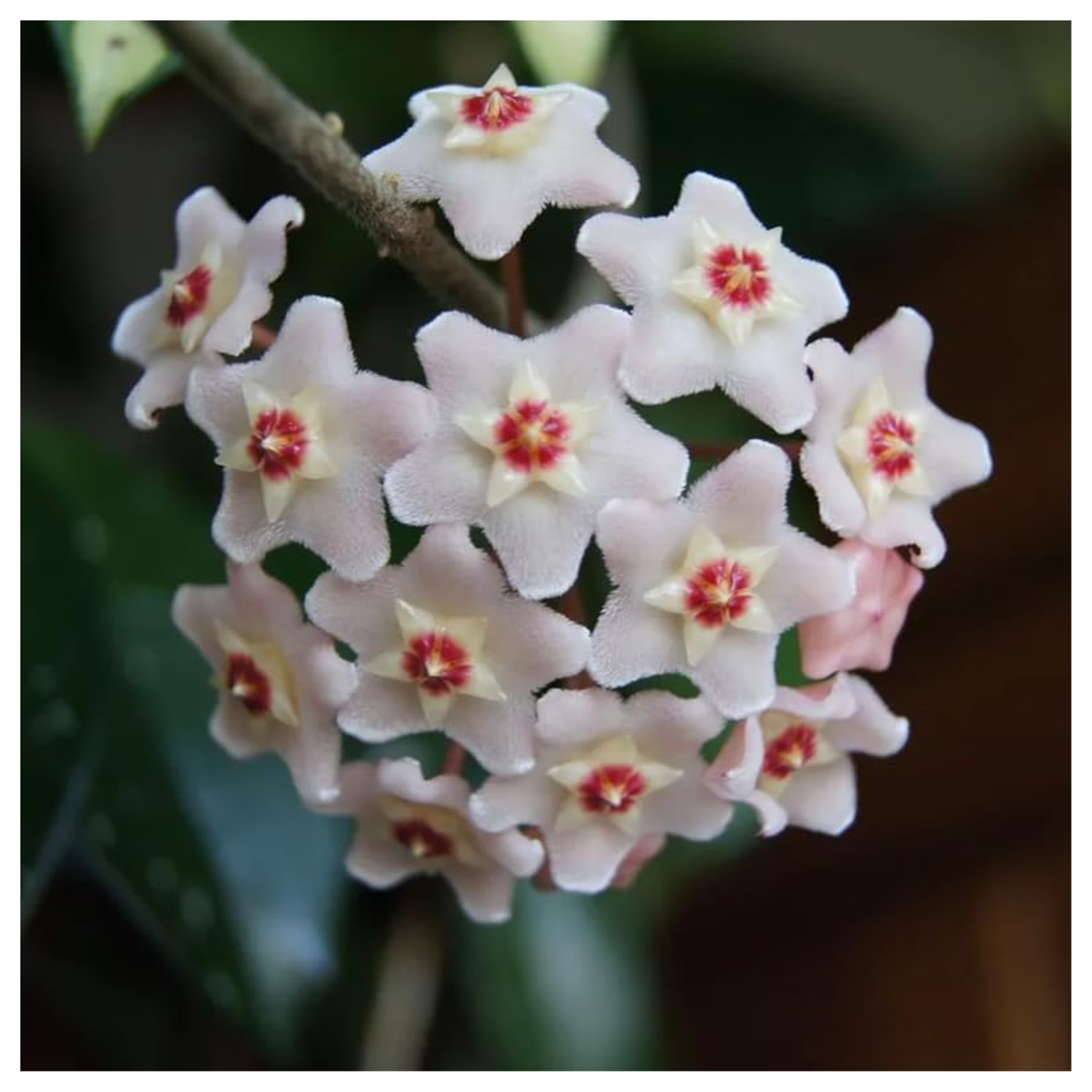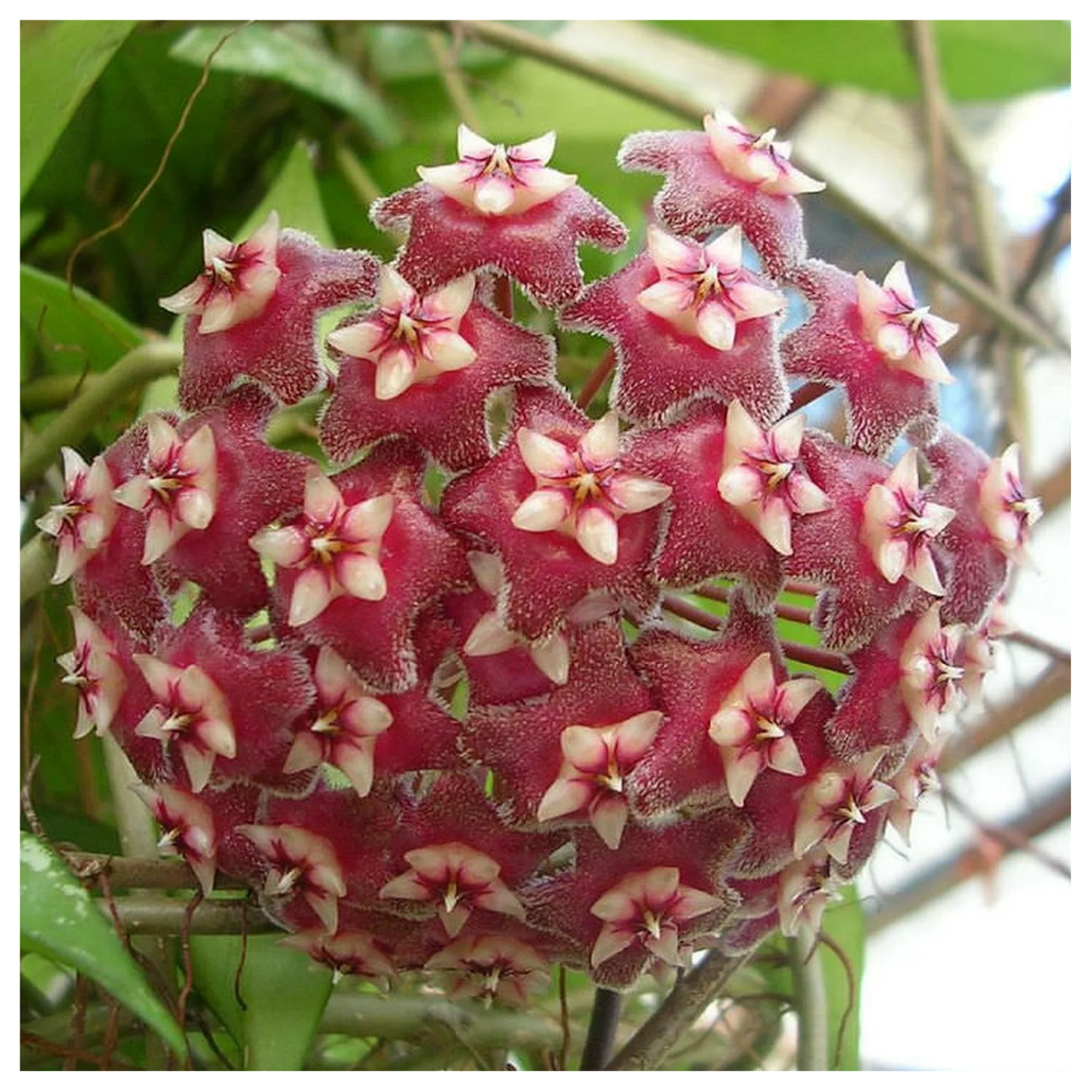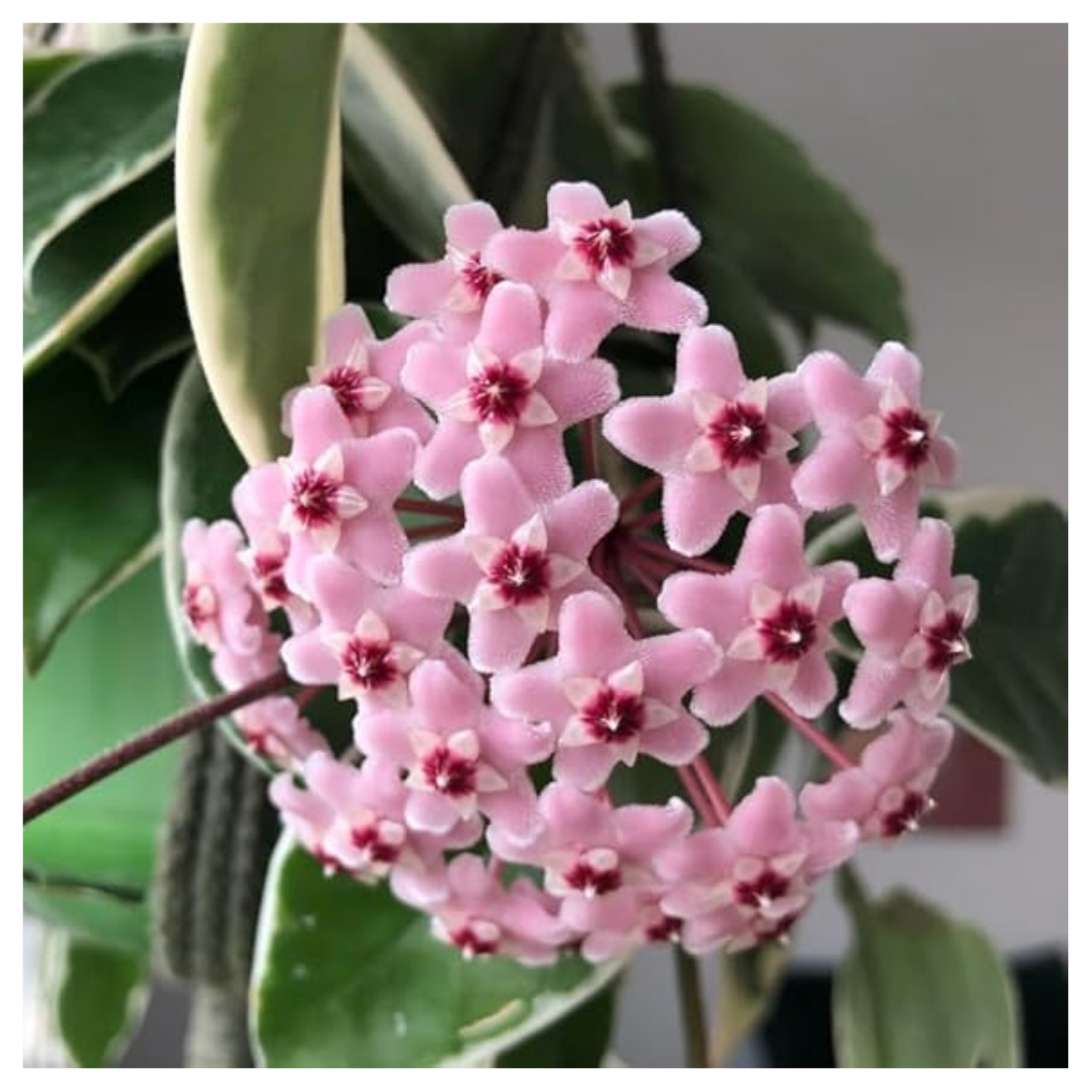How to Care for a Hoya Plant — You Should Do This to Encourage Your Houseplant to Bloom
If you're looking to welcome this East Asian native flower into your home, follow these expert-approved tips and tricks

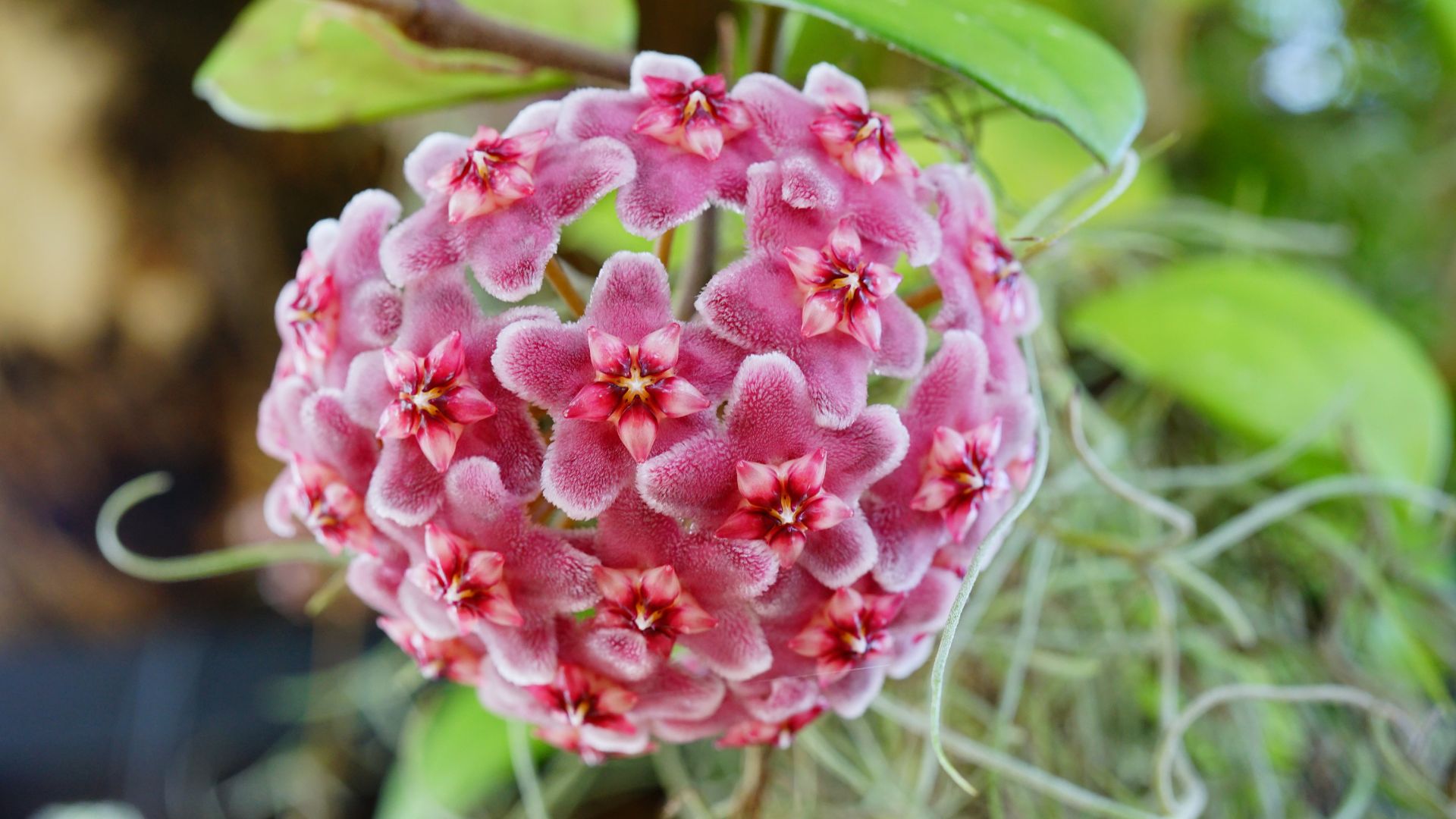
I was casually scrolling through my social media — as I usually do — when I came across a video of the ever-so-abundant Hoya Carnosa. It looked so unreal that I did what any sane plant lover would do. I rushed to the comment section and sifted through an array of commentary to find out if the plant was real or not. It is, of course, real and you can indeed welcome it into your loving home.
It turns out it's also one of the most popular houseplants and we're here to tell you how to take care of it — in order to keep it healthy and thriving. One look at the waxy flowers and jewel-like petals will convince you why it's beloved by the green thumb community.
To bring insight into these exotic-looking East Asian natives and how to properly grow and care for them at home, we called on the experts. Here is everything you need to know about hoya plant care.
How to Care for Hoya Carnosa
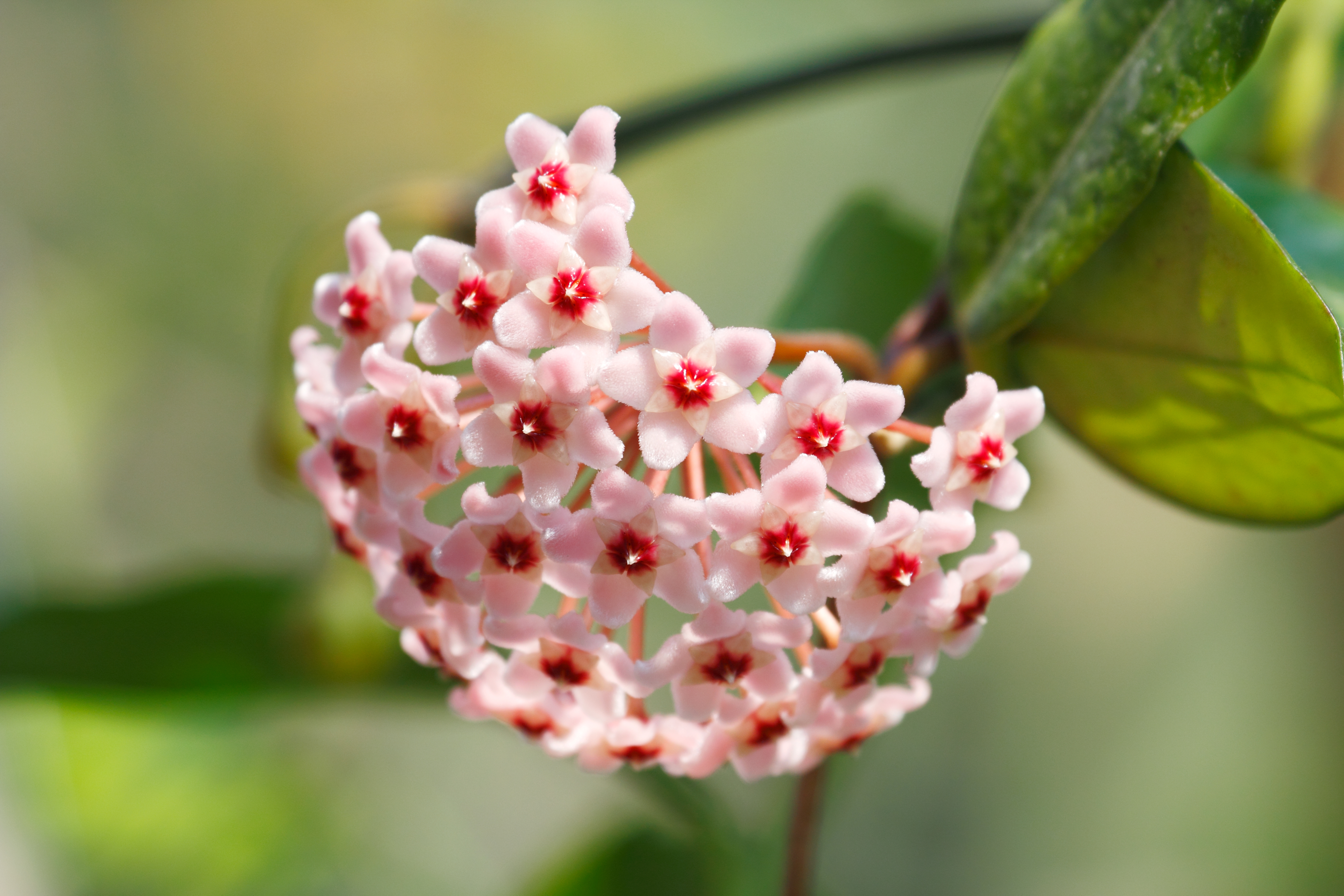
In conversation with Anastasia Borisevich, plant expert at Plantum, she tells us that these porcelain flowers are renowned for being resilient, easy to care for, and long-lived. "In its native environments, it usually hangs off the trunks and branches of tall trees as an epiphyte," she explains. "And in households, it has instead been relegated to hanging planters and trellises."
Gardening expert Tony O'Neill also finds hoyas to be pretty low-maintenance. However, that stands true provided you care for the plant appropriately. Here are some of the most important factors to consider when caring for hoya carnosas.
Light: Tony tells us that hoya carnosa prefers bright, indirect light. "While it can tolerate low light, its growth will slow, and it may not bloom as readily," he explains. "So, avoid direct sunlight as it can scorch the leaves."
Soil: When it comes to hoya carnosa's soil needs, Tony tells us that a well-draining, airy potting mix is key. He recommends opting for a mix designed for succulents as hoyas don’t like to sit in waterlogged soil.
The Livingetc newsletters are your inside source for what’s shaping interiors now - and what’s next. Discover trend forecasts, smart style ideas, and curated shopping inspiration that brings design to life. Subscribe today and stay ahead of the curve.
Water: When watering these unusual houseplants, he encourages hydrating them when the top one to two inches of the soil feel dry. He explains that hoyas like to dry out slightly between waterings but warns against leaving them to dry for too long.
Temperature: "Ideal temperatures for hoya carnosa range from 60-85°F (15-29°C)," notes Tony. "Keep them away from cold drafts or sudden temperature fluctuations."
Humidity: "Hoyas prefer moderate to high humidity (40-60%)," says Tony. "While they can adapt to lower humidity levels, providing extra humidity with a humidifier or misting will promote healthy growth."
Fertilizer: He suggests feeding your hoya carnosa with a balanced, water-soluble fertilizer once a month during the growing season (spring and summer). And finally, his pro-tip to caring for hoyas is to avoid fertilizing during winter when the plant is not actively growing.
How to Grow Hoya Carnosa

If you're interested in growing these indoor climbing plants on your own, here is Tony's step-by-step guide to cultivating hoya carnosa.
Step 1 - Choose a Pot: First, Tony tells us to select a well-draining pot with drainage holes to avoid root rot.
Step 2 - Potting Mix: Next, he recommends using a lightweight, well-draining mix designed for cacti or succulents.
Step 3 - Light Placement: "Place the plant in a bright spot with indirect sunlight," he advises. "A south or east-facing window is ideal."
Step 4 - Support: Since hoya carnosa is a trailing vine, Tony urges plant parents to consider adding a trellis, or hanging it to let the vines cascade.
Step 5 - Repot: Finally, he encourages repotting every few years, or whenever the plant becomes root-bound to refresh the plant's soil.
How to Make Your Hoya Carnosa Blooms

When you're decorating with plants, you want your crops to be showing off their blooms. If your hoya carnosa is not sprouting its elegant flowers, Tony tells us that there are a few factors to pay attention to for encouraged blooming.
Light: "The plant needs plenty of bright, indirect sunlight to bloom," says Tony. "So ensuring it receives at least 4-6 hours of good light each day is crucial."
Temperature: He explains that hoya carnosa often blooms in response to a slight drop in nighttime temperatures, so placing it in a cooler spot at night may help trigger blooming.
Fertilizer: "A phosphorus-rich fertilizer during the growing season (spring to summer) can encourage blooms," he says. If you don't have one in your arsenal at this time, we recommend treating your hoya to this Triple Super Phosphate Fertilizer from Amazon.
"My last piece of advice is to be patient, as hoyas can take a few years to mature enough to bloom," he adds. "Once they do, however, they will bloom more consistently."
If bringing this glamorous hoya carnosa plant into your home seemed like a far-reaching fantasy so far, we're here to reassure that it's actually a viable houseplant. As long as you take the time to properly care for these blooms, your home will be gifted with a flower feature like no other.
So if you've had hoyas on your Pinterest plant board for a while now, consider this the green light to adopt these waxy flowers and make your plant parenting dream a reality.
FAQs
What are the Common Pests & Diseases That Affect Hoya Carnosa?

According to Tony, there are three common pests and diseases that attack hoya carnosa plants. Here are his top tips on how to combat them.
Pests: Tony tells us that mealybugs, spider mites, and aphids are the most common pests. To combat them, he recommends wiping the leaves with a damp cloth and treating the plant with insecticidal soap or neem oil.
Root Rot: "This can occur if the plant is overwatered," he explains. "So, make sure your pot has good drainage and avoid leaving the plant in standing water."
Sooty Mold: He tells us that this may develop on the leaves if mealybugs or aphids are present, as these pests excrete a sugary substance. "Combat the mold by addressing the pests first," he advises. "And then cleaning the leaves with a damp cloth."
How Often Should You Repot Hoya Carnosa
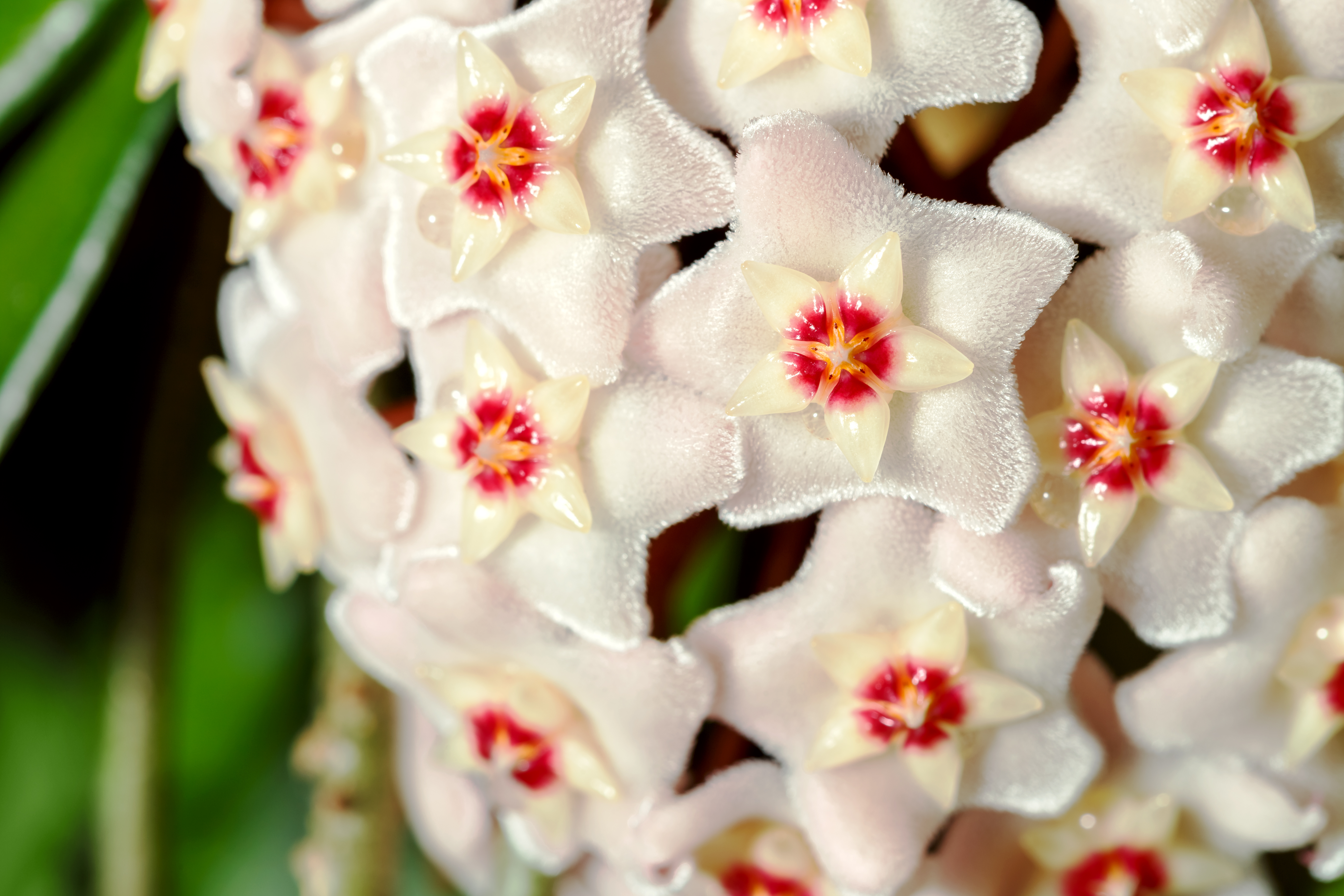
Tony tells us that hoya carnosa enjoys being somewhat root-bound, so he finds that repotting every two to three years is sufficient. He recommends repotting only when the roots start poking through the drainage holes or when the plant outgrows its pot.
"Repotting provides fresh soil and nutrients, promoting better growth," explains Tony. "However, frequent repotting can stress the plant and delay blooming, so keep it minimal."

Amiya is a Home Wellness Writer at Livingetc. She recently graduated with a Masters Degree in Magazine Journalism from City, University of London, and has lent her words to beauty, fashion, and health sections of lifestyle publications including Harper’s Bazaar and Women’s Health. Her experience as a research analyst has equipped her with an eye for emerging trends. When she’s off the clock, she can be found reading, listening to music, or overanalyzing her latest Co-Star update.
